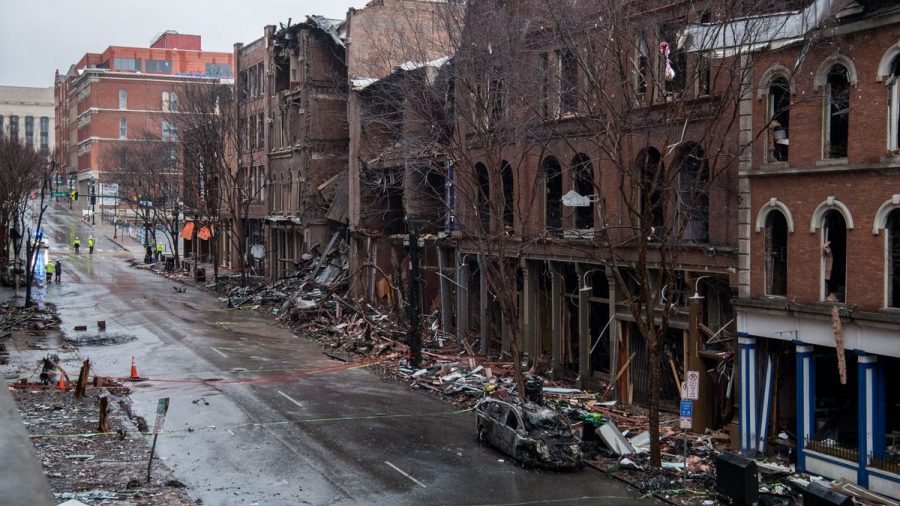The Blind Eye that Devastated Nashville
When one thinks of the FBI, the nation’s most highly trained security professionals with innovative crime-stopping technology and techniques come to mind. However, both the Nashville Police Department and the FBI made an extreme blunder in their unjustified hesitation to label Anthony Quinn Warner a domestic terrorist.
Anthony Quinn Warner, the perpetrator of the bomb that shook Nashville the morning of Christmas 2020, was a private computer technician. However, Warner wasn’t a new person of interest to the Nashville Police, for the department received information from his girlfriend on August 21st, 2019, 492 days before the bombing. Warner was making bombs.
Although the Nashville Police Department went to Warner’s residence, the RV that would ultimately house the bomb that blew up showed “no evidence of a crime and had no authority to enter his home or fenced property,” according to the Tennesean. Also, according to NPR, Warner’s lawyer proceeded to tell officers that he would “not allow his client to permit a visual inspection of the RV.” Superior officials were informed, although nothing else came of the report. The negligence of superior officials, and the fact that it took the Nashville Police Department 5 days to tell the FBI of this incident, is a disgraceful demonstration of ignorance; when presented with a bomb threat, a police department must rule out a possible threat through actually searching an area of interest and not simply search the outside of an RV and simply rule that there was “no evidence of a crime.”
In addition to his girlfriend’s claims about him building bombs, other evidence that emerged about Warner raises additional concerns about the diligence and response of the Nashville Police Department regarding Warner’s case. A few weeks before the bombing, Warner allegedly quit his job, gave away his car, and carried out a quitclaim deed of his duplex home to a Los Angeles woman for free. In addition, purchasing records show Warner buying bomb-making materials. Had the higher staff members of the Nashville Police Department watched after Warner and taken the threat more seriously and possibly put him under surveillance (which would’ve included discreetly watching and gathering information), the devastating event could have been prevented. Instead, terror rained down on Nashville as 2020 came to a close.
Domestic terrorism is defined by the FBI themselves as, “Violent, criminal acts committed by individuals and/or groups to further ideological goals stemming from domestic influences, such as those of a political, religious, social, racial, or environmental nature.” By labelling someone a terrorist, the FBI establishes transparency with the public by alluding that a crime was calculated and intended. Some sort of goal for the bombing becomes apparent through the recollection of one of Warner’s neighbors, who told authorities that in the days preceding the bombing, Warner told him that, “Nashville and the world is never going to forget [him].” Warner’s statement is evident of some sort of motive present in the mind of Warner that led him to carry out the bombing. Even if Warner’s motive hasn’t been determined, it is clear that he meant to induce terror on Nashville. So why hasn’t the FBI labelled him as a terrorist yet?
There isn’t a satisfactory answer- the FBI must label Warner as a terrorist. Warner killed himself, injured three people, and could have fatally harmed many more had a diligent cop not evacuated the area moments before the bomb. The blast destroyed many small businesses. In addition, Warner’s seemingly strategic placement of the bomb and subsequent disruption of an AT&T network hub that hindered communication for days disrupted the lives of civilians in and around the Nashville area. With all this damage, both physical and emotional, and the evidence that Warner had some sort of motive, what occurred in Nashville is clearly terrorism. The FBI not labeling Warner a terrorist and the Nashville Police Department’s response to intel sets bad precedent for the handling of future attacks and could possibly motivate future perpetrators.







